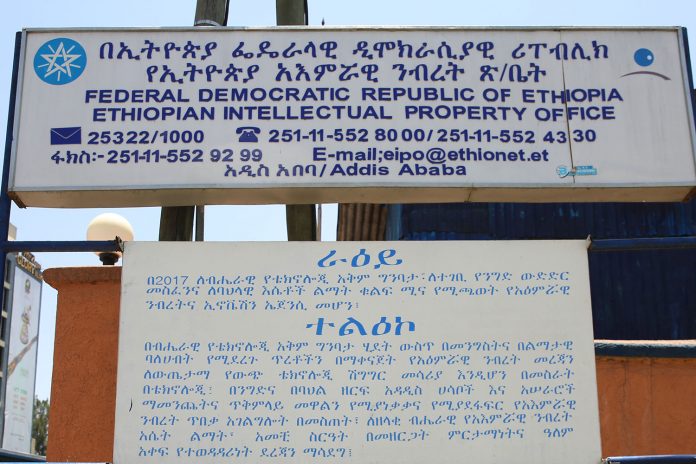
Fortune News | Dec 19,2021
Dec 19 , 2021
By Yigermal Meshesha
The fundamental components of interest-free based wealth creation systems could be fine-tuned and adopted throughout the world regardless of faith distinctions. It can be the path to eradicating poverty and building inclusive growth, writes Yigermal Meshesha (yigermalet@gmail.com), branch manager at Lion International Bank.
Islamic finance, aka interest-free finance (IFF), derives and defends its existence through Shari'ah compliance. Broadly, IFF is a type of financing activity that must comply with Islamic Law. The concept can also refer to the investments that are permissible under Shari'ah.
The common practices of interest-free finance and banking came into existence along with the foundation of Islam. However, the establishment of formal IFF occurred only in the 20th century. Especially in the past six decades, it has emerged to be an alternative to capitalism and communism as Muslim-majority states see. It is one of the exponentially growing financial activities these days, with an average growth of 15pc to 25pc annually, while interest-free financial institutions are said to oversee over two trillion dollars in value.
The two most dominant economic philosophies, communism and capitalism, have come a long way, yet considerable failures eventually created a severe complication. They have built a materialistic society, structural economic failure, war, and unequal socio-economic development throughout the world, which ultimately exacerbated a slide in values and norms.
Some scholars thus argue that interest-free finance helps build a more ethical political economy and equitable wealth creation and distribution in various models. This is true for communities of all colours and creeds.
Idiosyncratic to conventional finance, interest-free finance is based upon the prohibition of interest. The intrinsic value of the money is deemed unlawful and it cannot be used to create more of it or add value to it. But that is not the only reason for rejecting part of the conventional range of financial instruments. There are also other parameters we should clearly distinguish.
There is a ban on uncertainty, either contractual terms or conditions, and speculation in all forms or shapes is generally non-permissible. There is also the prohibition of financing of industries deemed unlawful, including gambling, alcohol or weapons, which are considered societally harmful.
No less interesting is how transactions in interest-free finance can be subject to guaranteed returns while third parties can generally guarantee the performance of the customer itself. Each financial transaction must likewise refer to a tangible, identifiable underlying asset. Interest-free finance should consider creating or adding value to the socio-economic uplift of the overall society.
The concept behind interest-free finance considers and deliberates on the relationship between employer and employee, labour, and knowledge contribution in the production process, which paves the way for wealth creation. Hence, wealth should be earned, invested, and spent in the correct avenues. The notion also provides a broad foundation of distribution of wealth and resources to establish peace, prosperity, justice, security, and economic balance in the society. Coupled with this is the idea of the equitability of wealth distribution, mainly emanating from establishing a practicable system of economy and enabling everyone to get what is rightfully due to them. Every individual should be allowed to function according to their ability, aptitude, choice, and liking so that his activities may be more fruitful, healthy and useful.
Under materialistic economic systems, there is only one way of acquiring the right to ''wealth'', which is direct participation in production. On the contrary, in an interest-free based economic system, not only those who have directly participated in the production of wealth but everyone else unable to participate has a right to claim some of it. Hence, the poor, the helpless, the needy, the paupers, and the destitute - they too have a right to wealth. Those that are well-off have a responsibility to pass on to them some part of their wealth.
The fundamental components of interest-free bases wealth creation systems could be fine-tuned and adopted throughout the world regardless of faith distinctions. It should be seen as a way out to eradicate poverty through building a resilient and inclusive economy, which the United Nations and other agencies have been advocating for as a target under the Sustainable Development Goals.
PUBLISHED ON
Dec 19,2021 [ VOL
22 , NO
1129]


Fortune News | Dec 19,2021

Fortune News | Jul 02,2022

Radar | Jul 11,2021

News Analysis | Jun 19,2021

Radar | Jul 11,2021

Commentaries | Oct 26,2024

Commentaries | Oct 26,2019

Radar | Oct 15,2022

Fortune News | May 23,2021

Fortune News | Jan 09,2021

Photo Gallery | 174608 Views | May 06,2019

Photo Gallery | 164833 Views | Apr 26,2019

Photo Gallery | 155037 Views | Oct 06,2021

My Opinion | 136695 Views | Aug 14,2021
Editorial | Oct 11,2025

Dec 22 , 2024 . By TIZITA SHEWAFERAW
Charged with transforming colossal state-owned enterprises into modern and competitiv...

Aug 18 , 2024 . By AKSAH ITALO
Although predictable Yonas Zerihun's job in the ride-hailing service is not immune to...

Jul 28 , 2024 . By TIZITA SHEWAFERAW
Unhabitual, perhaps too many, Samuel Gebreyohannes, 38, used to occasionally enjoy a couple of beers at breakfast. However, he recently swit...

Jul 13 , 2024 . By AKSAH ITALO
Investors who rely on tractors, trucks, and field vehicles for commuting, transporting commodities, and f...

Oct 11 , 2025
Ladislas Farago, a roving Associated Press (AP) correspondent, arrived in Ethiopia in...

Oct 4 , 2025
Eyob Tekalegn (PhD) had been in the Governor's chair for only weeks when, on Septembe...

Sep 27 , 2025
Four years into an experiment with “shock therapy” in education, the national moo...

Sep 20 , 2025
Getachew Reda's return to the national stage was always going to stir attention. Once...

Oct 12 , 2025
Tomato prices in Addis Abeba have surged to unprecedented levels, with retail stands charging between 85 Br and 140 Br a kilo, nearly triple...

Oct 12 , 2025 . By BEZAWIT HULUAGER
A sweeping change in the vehicle licensing system has tilted the scales in favour of electric vehicle (EV...

A simmering dispute between the legal profession and the federal government is nearing a breaking point,...

Oct 12 , 2025 . By NAHOM AYELE
A violent storm that ripped through the flower belt of Bishoftu (Debreziet), 45Km east of the capital, in...